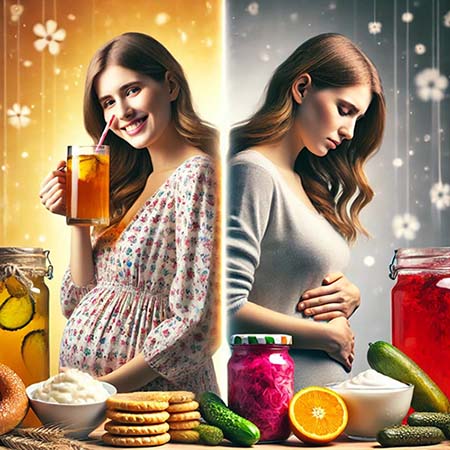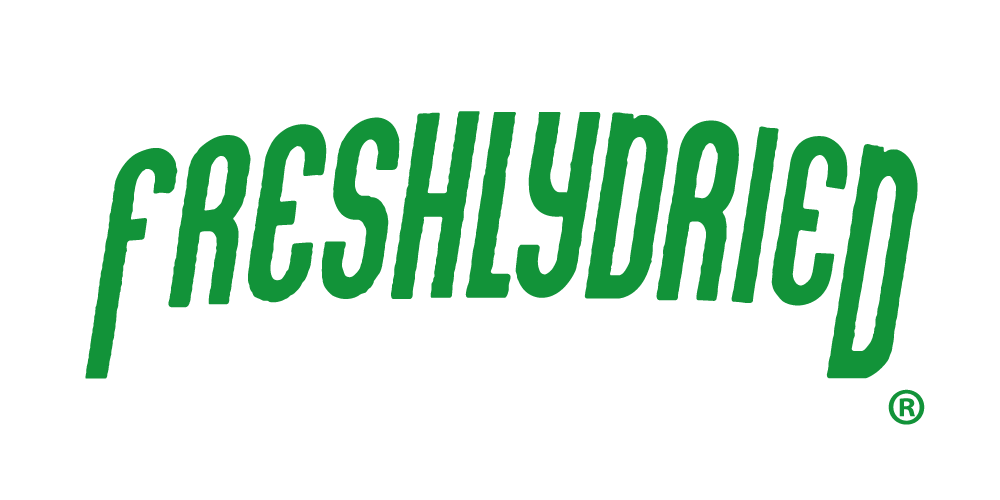

The Impact of Probiotics During Pregnancy
A Comparison Pregnancy is a transformative journey that involves numerous choices that can affect both mother and baby. One of the critical decisions has to do with dietary supplements and the inclusion of probiotics and fermented foods. But how important are these elections? In this blog post, we will explore the differences between a mother who includes probiotics in her diet during pregnancy and one who does not.
1. Gut health is a foundation for well-being:
Probiotic Mom:
A mother who regularly consumes probiotics and fermented foods, such as yogurt, kefir, and kombucha, typically enjoys better gut health. These foods help maintain a healthy balance of intestinal bacteria, which can improve digestion, reduce bloating, and relieve constipation, a common problem during pregnancy. Beneficial bacteria also support the production of essential nutrients such as vitamin K and certain B vitamins.
Mom without probiotics:
On the other hand, a mother who does not consume probiotics could experience more digestive discomfort during pregnancy. Without the help of beneficial bacteria, problems such as constipation and bloating can become more pronounced, leading to discomfort and a less pleasant pregnancy experience.
2. Strength of the immune system:
Probiotic Mom:
Probiotics are known to boost the immune system, which is particularly important during pregnancy when the body works overtime to protect both the mother and developing baby. Regular intake of probiotics can reduce the risk of infections, such as urinary tract infections (UTIs) and the common cold, by strengthening the body's natural defenses.
Mom without probiotics:
Without the immune-boosting effects of probiotics, a mother may be more susceptible to infections and illnesses during pregnancy. This increased vulnerability can lead to more frequent visits to the doctor and greater dependence on medications, which is not always desirable during this delicate period.
3. Pregnancy complications:
Probiotic Mom:
Some studies suggest that probiotics may help reduce the risk of pregnancy-related complications, such as gestational diabetes and preeclampsia. By promoting a healthy gut microbiome, probiotics can positively influence metabolic health and inflammation, key factors in the development of these conditions.
Non-probiotic mom:
A mother who does not take probiotics may have a slightly increased risk of developing these complications. Without the supporting role of probiotics, controlling blood sugar levels and inflammation could become more difficult, which could lead to more frequent complications and a less smooth pregnancy.
4. Vaginal health:
Probiotic Mom:
Probiotics also play a vital role in maintaining vaginal health. They help balance the vaginal microbiome, reducing the risk of bacterial vaginosis and yeast infections, which may be more common during pregnancy due to hormonal changes. A healthy vaginal environment is essential for a smooth delivery and postpartum recovery.
Mom without probiotics:
Conversely, a mother who does not include probiotics in her diet may face a higher risk of vaginal infections. These infections can cause discomfort and, if left untreated, can lead to more serious complications, such as premature birth.
5. Baby development:
Probiotic Mom:
A mother who consumes probiotics can help promote a healthy start for her baby. Research indicates that a balanced maternal microbiome may reduce a baby's risk of developing allergies, eczema, and other immune-related conditions. Additionally, the baby's gut health may benefit from the mother's healthy bacteria, which could lead to better digestion and immunity from birth.
Mom without probiotics:
A mother who does not take probiotics may not provide the same level of microbial diversity to her baby. This could potentially result in a higher chance of the baby developing allergic conditions or other immune system problems later in life.
In conclusion, it is a matter of choice and health. The choice to include probiotics and fermented foods in the pregnancy diet can have significant impacts on both the mother and her health. and the baby.
While both paths (taking probiotics and not taking them) can lead to a healthy pregnancy, the advantages of including these beneficial bacteria in her diet are compelling. From better digestive health to a stronger immune system and fewer pregnancy complications, probiotics offer several benefits that can make pregnancy smoother and healthier.
If you are pregnant or planning to become pregnant, consider discussing the inclusion of probiotics with your healthcare professional. supplier. A small change to your diet today could make a big difference in your pregnancy experience and the future health of your baby.
